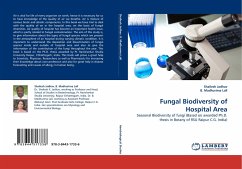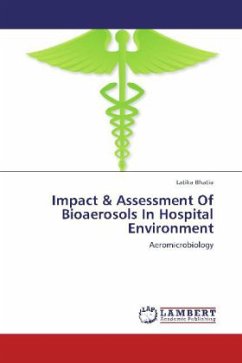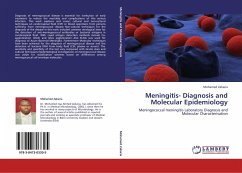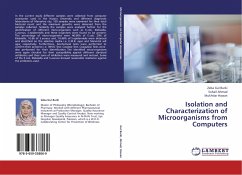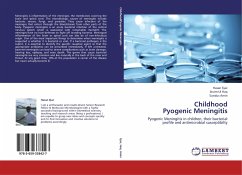
Childhood Pyogenic Meningitis
Pyogenic Meningitis in children, their bacterial profile and antimicrobial susceptibilty
Versandkostenfrei!
Versandfertig in 6-10 Tagen
32,99 €
inkl. MwSt.

PAYBACK Punkte
16 °P sammeln!
Meningitis is inflammation of the meninges, the membranes covering the brain and spinal cord. The microbiologic causes of meningitis include bacteria, viruses, fungi, and parasites. They cause infection of the meninges that enters through the bloodstream from other parts of the body. Pyogenic meningitis is an acute bacterial infection of the central nervous system which is associated with remarkable mortalitY. The meninges have no host defenses to fight off invading bacteria. Meningeal inflammation of the brain or spinal cord can also be of non-infectious origin. One of the most important thin...
Meningitis is inflammation of the meninges, the membranes covering the brain and spinal cord. The microbiologic causes of meningitis include bacteria, viruses, fungi, and parasites. They cause infection of the meninges that enters through the bloodstream from other parts of the body. Pyogenic meningitis is an acute bacterial infection of the central nervous system which is associated with remarkable mortalitY. The meninges have no host defenses to fight off invading bacteria. Meningeal inflammation of the brain or spinal cord can also be of non-infectious origin. One of the most important things to determine when meningitis is suspected is whether it is bacterial or viral. If a bacterial pathogen is the culprit, it is essential to identify the specific causative agent so that the appropriate antibiotics can be prescribed immediately. If left untreated, bacterial meningitis can lead to severe complications such as brain damage, hearing loss, epilepsy, and even death. The germs that cause bacterial meningitis are very common and live naturally in the back of the nose and throat. At any given time, 10% of the population is carrier of the disease but never actually become ill.



